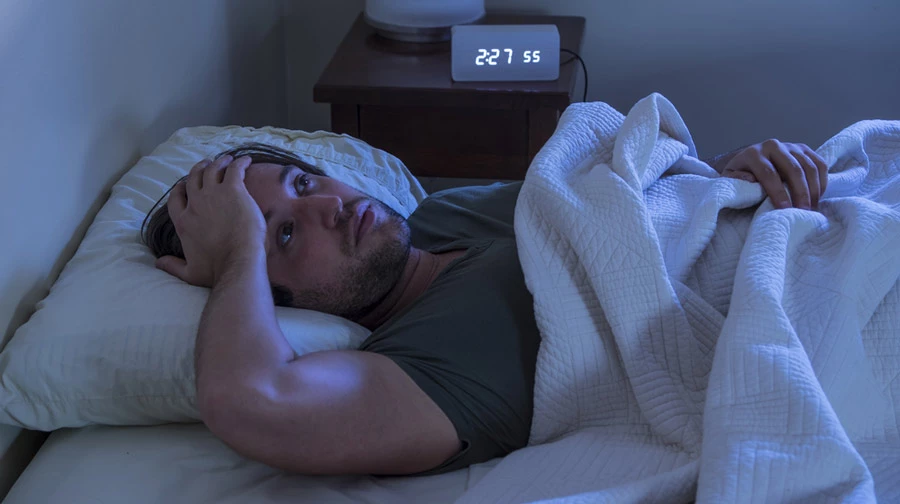Getting Proven Alcohol Abuse Treatment Options
Binge drinking, defined as excessive alcohol consumption within a short span of time leading to intoxication, is more than just risky behavior. Its potential repercussions extend far beyond immediate health hazards and hangovers. From chronic diseases such as liver disease and heart disease to acute risks such as accidents or injuries, the effects of binge drinking can be life-threatening.
Additionally, what might begin as a social activity or an attempt at unwinding can spiral into dependence or addiction without one even realizing it’s happening. This combination makes it hard for individuals trapped in this cycle to break free on their own.
If you or someone you love needs help with their alcohol intake, we’re here for you.
Keep reading to learn more about binge drinking, the effects it can have on both physical and mental health, and how Catalina Behavioral Health can help you with proven alcohol abuse treatment options so you can learn how to stop binge drinking.
24 Hour Alcohol Rehab Helpline
What Exactly is Binge Drinking?
Binge drinking is a specific type of heavy alcohol consumption. It’s defined by the National Institute on Alcohol Abuse and Alcoholism (NIAAA) as a pattern of drinking that brings blood alcohol concentration (BAC) levels to 0.08%. This typically transpires after consuming around 4 drinks in two hours for women, or about 5 drinks within the same period for men (this could be a mixed drink, beer, or wine).
The NIAAA’s parameters are based on averages; actual blood alcohol levels can vary widely based on individual factors like body weight, metabolism, and food intake prior to drinking. It is worth noting that binge drinking can be a component of any of the three stages in the progression of alcoholism.
As expected, binge-drinking thresholds differ between adults and youths. The same BAC threshold is achieved with fewer drinks among teens and younger adults – because of their lower overall body mass – approximately just three alcoholic beverages consumed by adolescent girls or boys depending again on age and size would land them into this category.
Binge drinking isn’t defined by how drunk a person feels, but rather refers to an observed increase in BAC, which tends to significantly impair cognitive functions. This can lead to potentially fatal results such as accidents or adverse health impacts.
Do You Binge Drink? Signs and Symptoms of Excessive Alcohol Consumption

Binge drinking and other problematic drinking behaviors, while often normalized in many societies, can pose serious health and social risks. Recognizing the signs of problematic consumption patterns is integral to reducing binge drinking before it escalates into more serious consequences.
Some of the most common signs of binge drinking and problem drinking include the following:
- Drinking More Than Intended: Regularly consuming alcohol beyond one’s initial intention can be an indication of binge drinking or developing a dependence on alcohol.
- Frequent Consumption: If you observe that the need for alcohol becomes increasingly regular or you need to binge drink for daily functioning, it’s a warning sign of excessive use.
- Early Day Drinking: Another cause for concern is if there is frequent daytime drinking, especially when used as a coping mechanism rather than an occasional leisure activity.
- Tolerance: A clear red flag arises when higher amounts are required to achieve the same level of intoxication – suggesting possible tolerance development towards alcohol leading to dependence. How often you binge drink and how much alcohol you consume will have an effect on your tolerance.
- Withdrawal Symptoms: Sudden cessation after habitual binge drinking might lead to withdrawal symptoms like anxiety, sweating, tremors, and even seizures – which indicate a problem.
- Engaging in Dangerous Activities Under The Influence: Risk-taking behaviors or dangerous actions while under the influence of alcohol represent one of the more immediate concerns in relation to binge drinking. This could include drinking and driving, other types of drug abuse, or even engaging in unsafe sexual encounters.
A binge drinker is also more likely to experience sexual assault than someone who does not drink heavily, though this is in no way their fault.
- Difficulty in Social Situations: If an individual seems unable to navigate social events without consuming large amounts of alcohol, this may indicate a reliance on it as a social lubricant or for dealing with personal insecurities. Additionally, if someone is always drinking or intoxicated during social interactions and this causes conflict, this is also a red flag that there is a binge drinking or other type of drinking problem.
- Academic or Work-related Problems: Having difficulties at school or work due to alcohol consumption, for instance missing deadlines, poor concentration, frequent absences, or drop in performance, can denote a binge drinking problem.
- Issues at Home: Finally, if one’s relationships start suffering as a result of their drinking habits – e.g., fights with family members or neglecting responsibilities – this points towards an issue requiring attention.
Recognizing these signs offers the initial step toward addressing the issue of binge drinking and other problem drinking and the potential risks to an individual’s life.
Short-Term and Long-Term Effects of Binge Drinking

As you can see, one major public health concern that needs addressing is binge drinking due to its severe consequences. Shockingly, researchers associate over half of all alcohol-related fatalities – equating to approximately 88,000 per year – directly with heavy drinking.
The causes range from drunk driving accidents and alcohol poisoning to suicide and violent encounters. Understanding more about the immediate and long-term implications of binge drinking is essential.
7 Common Short-Term Effects of Binging Alcohol
Some of the most common short-term effects of binge drinking include the following:
- Impaired Motor Control and Slow Reaction Times: One of the immediate effects of a binge drinking episode is impairment in motor coordination and delayed response rates. This can greatly increase the risk of accidents, including falls or car crashes.
- Shorter Attention Span and Blackouts: Consuming large quantities of alcohol within a short period can affect cognitive functions leading to decreased attention span and impaired memory recall, often characterized by blackouts or gaps in memory about events that occurred while intoxicated.
- Dehydration: Alcohol has a diuretic effect – it leads to frequent urination causing dehydration, which results in headaches, dizziness, and fatigue, amongst other symptoms that occur during hangovers after binge-drinking episodes.
- Depression and Hostility: Alcohol can significantly impact your mental state, leading to feelings of depression or hostility. These feelings can surface both during the act of binge drinking and in the subsequent periods of sobriety.
- Lower Blood Pressure and Slower Breathing: Under acute influence, alcohol acts as a depressant on the central nervous system causing reductions in blood pressure and respiration rates, which might lead to fainting spells or more severe complications like respiratory problems.
- Risks for Pregnant Women: If you’re pregnant, binge drinking carries additional risks beyond those to yourself; it poses serious threats including higher chances of miscarriage, stillbirths, or potentially causing Fetal Alcohol Spectrum Disorders (FASDs) – a range of developmental disorders affecting an unborn baby.
- Alcohol Poisoning: The most life-threatening short-term effect is alcohol poisoning- a clinical emergency seen after high intake that results in severe physical symptoms such as vomiting, seizures, and comatose states potentially progressing into fatality if not immediately managed medically. Alcohol poisoning should always be taken seriously.
8 More Serious Long-Term Effects from Excessive Drinking

The convoluted interplay between binge drinking and its physical cravings and psychological compulsions elevates the need for professional intervention when attempting to quit binge drinking safely after drinking excessively for an extended period of time
With specialized alcohol abuse treatment at Catalina Behavioral Health designed to treat substance abuse issues – including binge drinking – achieving long-term recovery becomes feasible.
With that said, some of the most common long-term effects of binge drinking include:
- Weight Gain: Regular episodes of binge drinking can contribute to significant weight gain. Alcohol is calorie-dense and its consumption, particularly in large amounts, often combined with unhealthy eating choices made under the influence, can lead to obesity over time.
- High Blood Pressure: Chronic heavy drinking can cause high blood pressure – a key risk factor for many cardiovascular diseases such as heart disease or strokes
- Sleeping Disorders: Long-term binge drinkers may develop sleep disturbances like insomnia due to alterations caused by alcohol on regular sleeping patterns. This could become chronic, persisting even during periods of sobriety.
- Social Isolation and Mental Health Problems: Persistent binge drinking often leads to social isolation as maintaining relationships or job commitments becomes difficult. This can trigger or exacerbate mental health issues like depression and anxiety disorders.
- Loss of Brain Volume in Young People: Continuous alcohol misuse, particularly binge drinking, during adolescence has been linked with a reduction in brain volume and cognitive impairments affecting academic and career progressions.
- Weakened Immune System: Binge drinking can compromise the immune system making you more prone to infections, as it reduces the body’s ability to fight disease-causing germs.
- Increased Risk of Organ Damage and Cancers: Repeated episodes can induce irreversible damage to the heart and liver, increasing the risk for conditions like cirrhosis or heart diseases along with heightening susceptibility for certain cancers – such as mouth, throat, or breast cancer.
- Development of Alcohol Use Disorder (AUD): Finally, it’s critical must understand that sustained frequent episodes of binge drinking often lead to developing an addiction to alcohol, which requires comprehensive professional interventions.
The extensive list of potential harms emerging from long-term binge drinking underscores just how detrimental this behavior can be.
Get Immediate Help For Problem Drinking!
Proven Ways To Stop Excessive Drinking
Binge drinking is a pervasive issue, often leading to serious health and lifestyle detriments if not addressed comprehensively. Fortunately, it’s possible to cut back through a combination of self-care strategies and professional support that suits your unique circumstances.
The journey towards curbing binge drinking can seem scary initially, but taking the right steps can set one on the path to recovery.
Make a Plan and Put it in Writing
Having a concrete plan can be incredibly helpful when trying to manage binge drinking habits. Define clear limits for yourself around the frequency of your drinking and the quantity consumed each time. Write this down as it adds accountability, serves as a constant reminder, and aids in tracking your progress.
Change Your Environment
Environmental triggers to consume alcohol often contribute to patterns of excessive drinking. This might mean changing who you choose to spend time with or adjusting where you socialize.
Choose activities that do not involve alcohol—begin exercising regularly or engage in a new hobby. By steering clear of settings that promote drinking, you reduce the chances of succumbing to temptation.
Rely on Family and Friends for Support
Having a solid support network can make all the difference in this challenging endeavor. Share your decisions about cutting back or quitting with loved ones you can trust, who will respect your choice and encourage your resolve.
Consider Abstinence
While moderation may work for some, others find that total abstinence is what they need to manage their relationship with alcohol better. It might sound difficult at first, but it becomes more manageable over time as new habits replace old ones.
Figure Out Why You’re Binge Drinking
Figuring out why you’re binge drinking in the first place is a crucial step in your recovery process. This involves examining what drives you toward drinking too much alcohol, considering both internal and external factors.
If you tend to drink more when under stress or dealing with emotional issues, then engaging in healthier coping mechanisms like deep breathing exercises or seeking therapy can be helpful.
On the other hand, if social pressure initiates your drinking binges, being more discerning about who you choose to surround yourself with may offer significant benefits. Getting an understanding of ‘why’ not only aids in recognizing underlying patterns but also provides valuable insights for tailoring a successful strategy specific to your needs.
Developing healthier habits around alcohol and figuring out how to stop binge drinking alcohol requires planning, effort, and continuous support.
When Quitting On Your Own Hasn’t Worked- Alcohol Treatment Options

When addressing binge drinking, different treatment options are available to match the varying levels of severity and individual requirements.
If you’ve already tried to stop binge drinking on your own and haven’t been able to, the following are some of the most common treatment options for those interested in stopping binge drinking.
Detox
For many binge drinkers, detoxification is the initial step in alcohol treatment programs. During medically supervised detox, your body works to rid itself of alcohol and any associated toxins.
This process can be difficult, and even dangerous if not conducted under medical supervision due to potential withdrawal symptoms that vary from mild (such as anxiety or shaky hands) to severe ones like seizures, hallucinations, and death.
Inpatient Treatment
In inpatient or residential treatment, you stay at our facility full-time for weeks to months. This setting provides 24-hour medical care and a structured environment that is most beneficial for those who do not know how to stop binge drinking or those with severe alcohol use disorders.
It includes detoxification, medical supervision, counseling sessions, and therapeutic activities aimed at teaching healthier coping mechanisms.
Partial Hospitalization Program (PHP)
These programs provide similar comprehensive care as inpatient settings but allow you the freedom to return home after each day’s therapy session, typically running for several hours for five days per week.
At Catalina, our PHP can work well if your condition requires robust support yet needs flexibility to deal with responsibilities at home.
Intensive Outpatient Program
Intensive Outpatient Programs (IOP) offer substantial therapeutic support while allowing participation in daily life activities like school or work.
Attendance at our IOP may be required several times or more per week with sessions lasting around three hours each, focusing on cognitive behavioral techniques, learning relapse prevention, and participating in group therapy.
Outpatient Treatment

Outpatient treatment for binge drinking is a flexible form of care that also doesn’t require overnight stays at a facility, which can be particularly beneficial if you have work, school, or family commitments.
A typical outpatient program involves attending sessions once or twice per week with each session lasting one to two hours. These programs are designed to provide support while allowing you to put into practice the skills learned in therapy within your real-world context.
Aftercare Following Alcohol Treatment
The key components of outpatient treatment usually include individual counseling, group therapy, family therapy, and educational sessions. It’s usually highly recommended in this phase to attend 12-step meetings as well, like Alcoholics Anonymous, for support.
It’s crucial to understand that every person’s healing journey is distinct and requires a custom strategy for the best possible results. With the right professional assistance and support structures in place, achieving sobriety and maintaining it long-term can indeed be within your reach despite struggles with alcohol dependence or binge drinking.
Up to 100% of the Costs of Treatment Covered by Insurance
Reach Out to Catalina for Help to Stop Drinking Today
Binge drinking is a serious issue that requires professional intervention. If you or anyone around you is grappling with binge drinking, considering treatment may be the key to initiating the journey towards recovery.
Catalina Behavioral Health can offer assistance in this matter. Our team includes experienced professionals who understand what it takes to recover from alcohol misuse and are committed to creating personalized care plans that address each individual’s specific needs.
Do not hesitate to reach out today and make contact with Catalina Behavioral Health for help.
All calls to our facility are completely confidential, so please call to get options for support for you or your loved one now!




